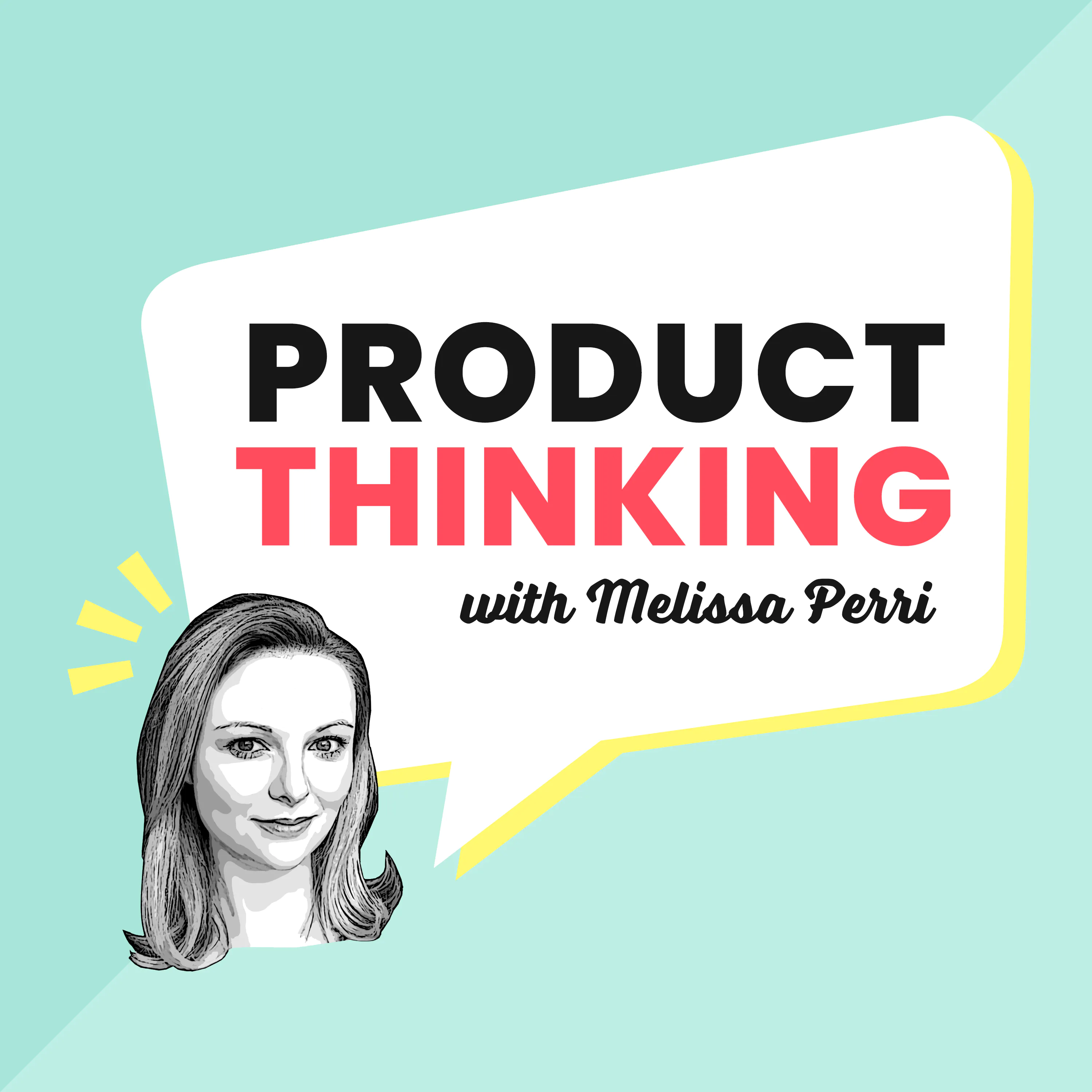Episode 192: Brian Fugere’s Blueprint for Merging Teams and Technologies
October 9, 2024

Host Melissa Perri enjoys a far-reaching conversation with Brian Fugere in this episode of the Product Thinking Podcast. Brian is the Chief Product Officer at Symplr, with extensive experience in transforming businesses through AI-powered automation and robotics. They discuss the impact of AI and automation on supply chain innovation, the balance between operational efficiency and creativity in product leadership, and how to scale product teams effectively. Brian also shares insights into aligning teams with business outcomes, fostering innovation while managing risk, and navigating the challenges of working with cutting-edge technology.
In this episode of the Product Thinking Podcast, host Melissa Perri chats with Brian Fugere, Chief Product Officer at Symplr, an expert with decades of experience in healthcare technology and enterprise solutions. Brian shares valuable lessons from his diverse career, offering a behind-the-scenes look at how Symplr approaches innovation in the complex world of healthcare operations and compliance.
Tune in to hear Brian’s insights on leading product teams in a rapidly evolving industry, and how he balances customer demands with strategic decision-making. He also dives into the importance of simplifying products for enterprise clients, while tackling the unique challenges of navigating regulatory requirements in healthcare.
Throughout the conversation, Brian emphasizes the need for clear communication, empowering teams to deliver value, and fostering a culture of collaboration that puts both the customer and product at the forefront.
Whether you're in healthcare, product management, or navigating leadership challenges in any sector, this episode provides actionable advice to drive meaningful impact through your product strategy.
You’ll hear us talk about:
- 15:43 - Balancing Build Versus Buy Decisions
Brian addresses the decision-making process behind building a product in-house versus acquiring it. He states that time and resources are the two critical factors in this equation. The company evaluates whether acquiring an existing solution would be faster and more cost-effective than building one. Brian is keen to stress that a company must also assess its internal competencies when making this decision. Symplr, for example, is better at buying existing solutions and optimizing them, rather than building something from scratch, as they’ve built teams specifically skilled in acquisitions and improvements.
- 29:05 - The Role of Subject Matter Expertise vs. Product Expertise in Healthcare
In healthcare, balancing subject matter expertise with core product management skills is critical. Brian explains that in assembling product teams, he intentionally mixes product experts with subject matter experts to foster cross-learning. As he points out, healthcare is a particularly complex field where deep domain knowledge is crucial for addressing nuanced customer needs, but pure product expertise is still required in order to run processes efficiently. For example, ex-nurses who deeply understand the intricacies of healthcare systems may not have the product management background but are invaluable for shaping the right solutions. Getting that balance of expertise right is vital for such an important field.
- 37:46 - Balancing "Carrot and Stick" for Customer Transition
When it comes to migrating customers from older platforms to newer ones, Fugere outlines the complex balancing act involved. Simpler has a dedicated migration team, reflecting how integral this process is to their strategy. Fugere's guidance to product managers is to aim for "sufficient parity" with the older platform to facilitate a smooth transition. However, they also need to offer enticing new features that encourage users to migrate willingly. The key is identifying high-priority pain points from customer feedback and rethinking problematic areas to add real value—like applying AI to automate parts of the scheduling process in their workforce management product.
Episode Resources:
If you enjoyed this episode, please visit:
Previous guests include: Shruti Patel of US Bank, Steve Wilson of Contrast Security, Bethany Lyons of KAWA Analytics, Tanya Johnson Chief Product Officer at Auror, Tom Eisenmann of Harvard Business School, Stephanie Leue of Doodle, Jason Fried of 37signals, Hubert Palan of Productboard, Blake Samic of Stripe and Uber, Quincy Hunte of Amazon Web Services
Check out our Top 3 episodes:
Check out our Top 3 episodes:
- Episode 177: The Evolution of User Research: A Conversation with Steve Portigal, Author of Interviewing Users
- Tackling Product Research with C. Todd Lombardo
- Episode 128: Scaling Product Operations with Blake Samic, Former Global Head of Product Operations at Stripe and Uber
Product Thinking is handcrafted by our friends over at: fame.so
Product Thinking Guest and Audience Podcast Feedback Form
Product Thinking Guest and Audience Podcast Feedback Form